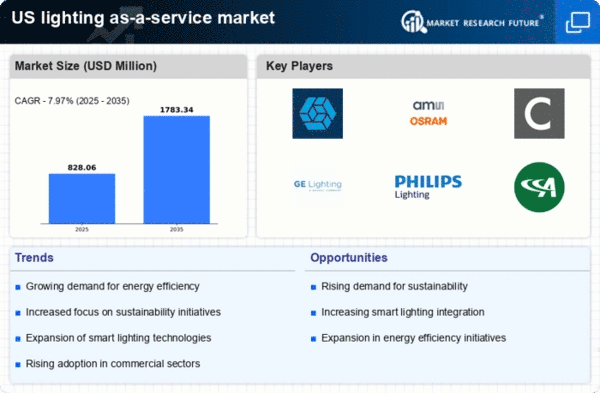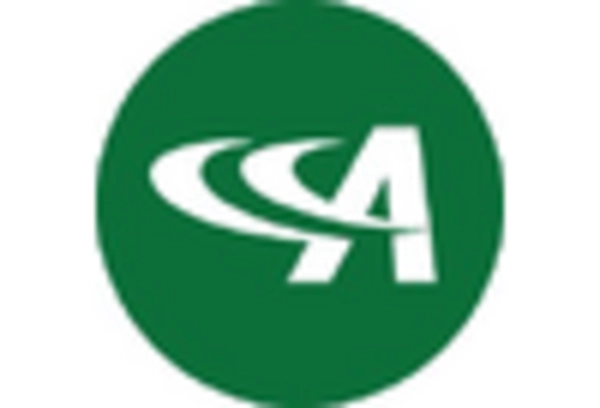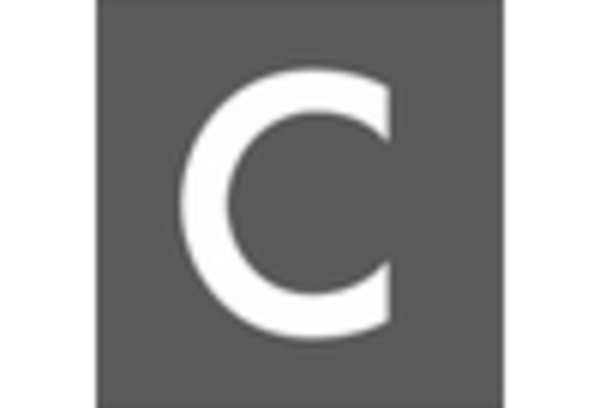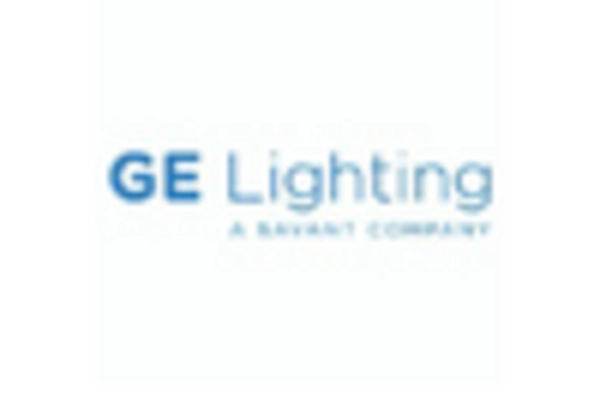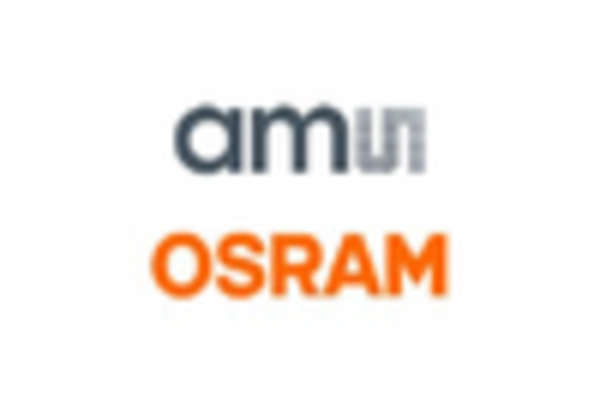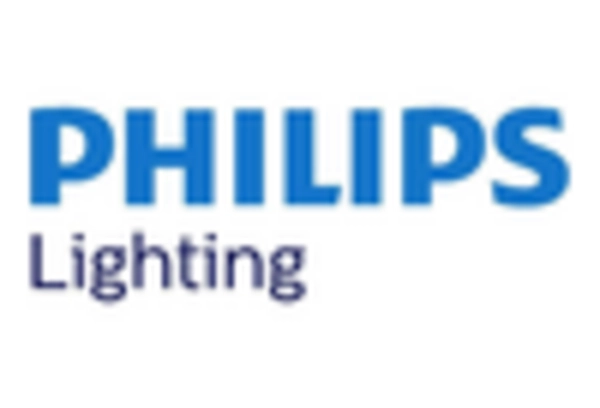Increased Awareness of Environmental Impact
There is a growing awareness among businesses regarding their environmental impact, which is driving the adoption of lighting as-a-service solutions. Companies are increasingly prioritizing sustainability in their operations, recognizing that energy-efficient lighting can significantly reduce their carbon footprint. The lighting as-a-service market is well-positioned to capitalize on this trend, as it offers solutions that not only enhance energy efficiency but also contribute to corporate social responsibility goals. As organizations strive to meet sustainability targets, the demand for lighting as-a-service is expected to rise, reflecting a broader commitment to environmental stewardship.
Growing Demand for Energy Management Solutions
The lighting as-a-service market is experiencing a notable surge in demand for energy management solutions. Organizations are increasingly recognizing the importance of optimizing energy consumption to reduce operational costs and enhance sustainability. This trend is particularly pronounced in commercial sectors, where energy expenses can account for a significant portion of overall costs. According to recent data, energy-efficient lighting solutions can lead to reductions in energy usage by up to 50%. As businesses seek to implement comprehensive energy management strategies, the lighting as-a-service market is positioned to benefit from this growing focus on efficiency and cost savings.
Technological Advancements in Lighting Systems
Technological advancements are playing a pivotal role in shaping the lighting as-a-service market. Innovations such as LED technology, IoT integration, and smart controls are transforming traditional lighting systems into sophisticated solutions that offer enhanced functionality and efficiency. The integration of IoT allows for real-time monitoring and control, enabling businesses to optimize their lighting usage based on occupancy and natural light availability. This shift towards smart lighting solutions is expected to drive market growth, as organizations increasingly seek to leverage technology to improve operational efficiency and reduce energy costs.
Shift Towards Subscription-Based Business Models
The shift towards subscription-based business models is significantly influencing the lighting as-a-service market. Organizations are increasingly favoring models that allow them to pay for lighting solutions as a service rather than making substantial upfront investments. This approach not only alleviates financial burdens but also provides flexibility in managing lighting needs. As businesses seek to adapt to changing operational requirements, the subscription model offers a viable solution that aligns with their financial strategies. This trend is likely to continue, as more companies recognize the benefits of predictable costs and reduced capital expenditures.
Regulatory Support for Energy Efficiency Initiatives
Regulatory frameworks in the US are increasingly supporting energy efficiency initiatives, which is positively impacting the lighting as-a-service market. Government policies and incentives aimed at promoting energy-efficient technologies are encouraging businesses to adopt modern lighting solutions. For instance, various state and federal programs offer financial incentives for organizations that implement energy-efficient lighting systems. This regulatory support not only facilitates the adoption of lighting as-a-service models but also aligns with broader sustainability goals, making it an attractive option for businesses looking to comply with environmental regulations.


